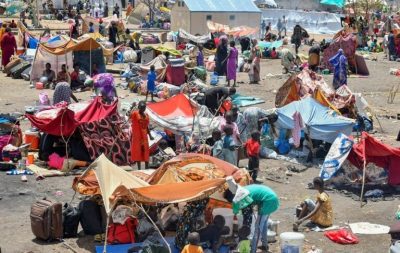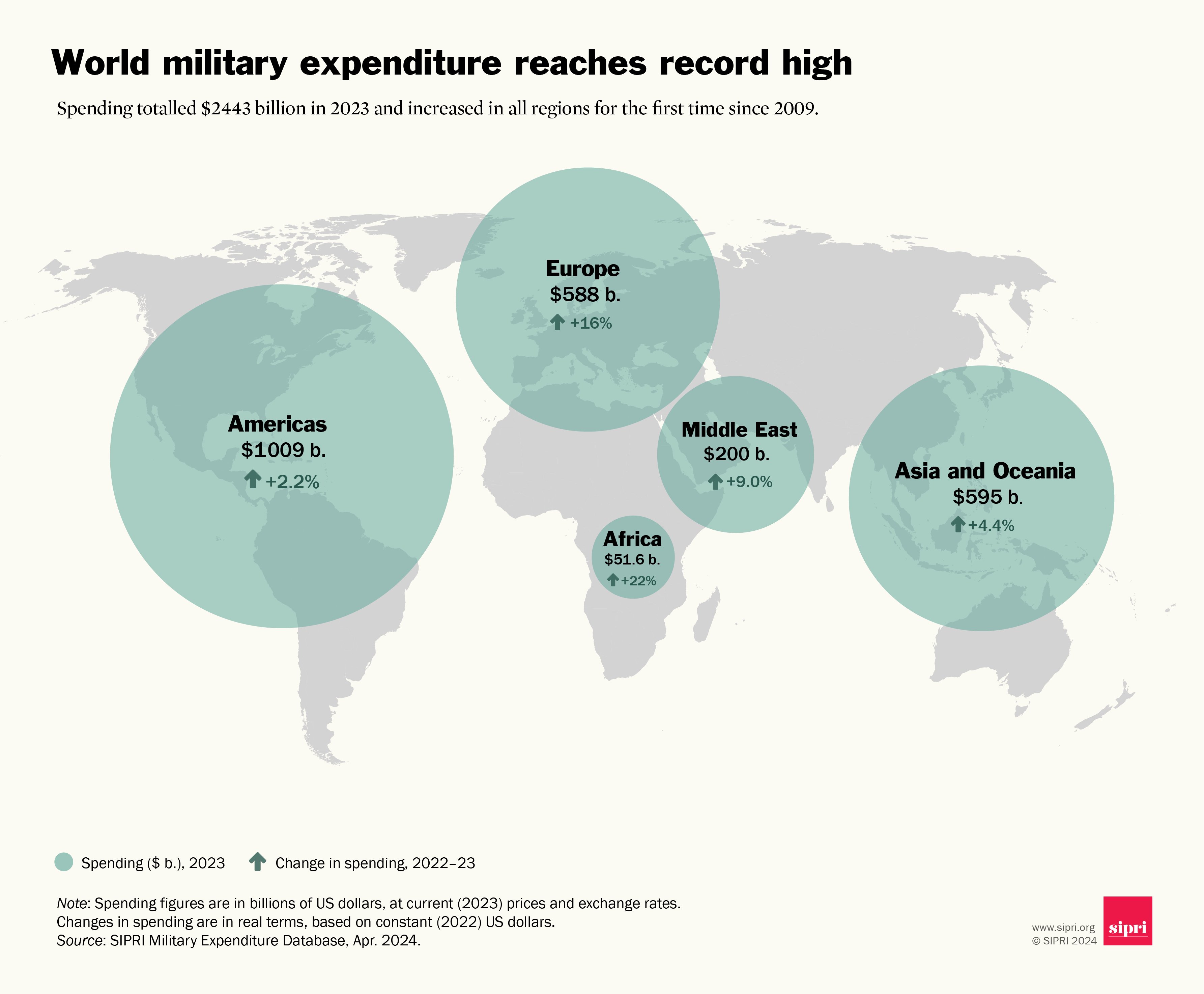Worldwide Military Spending Reaches $2400 Billion. Plenty of Money for Weapons. Shortfall in Funds for United Nations (OCHA) Humanitarian Endeavours
OCHA Tried to Raise Just 2.4% of World Military Budget for Its Humanitarian Work in 2023 But Received Only 0.8%

All Global Research articles can be read in 51 languages by activating the Translate Website button below the author’s name (only available in desktop version).
To receive Global Research’s Daily Newsletter (selected articles), click here.
Click the share button above to email/forward this article to your friends and colleagues. Follow us on Instagram and Twitter and subscribe to our Telegram Channel. Feel free to repost and share widely Global Research articles.
Global Research Wants to Hear From You!
***
In 2023, the world spent $2400 billion on military expenditure.
During the same year the UN’s Office for Coordination of Humanitarian Affairs (OCHA) tried to raise $57 billion for people facing humanitarian crisis all over the world.
This was just about 2.4% of the world’s military budget. However it could actually raise only about $20 billion. This amounted to just 0.8 per cent of the military expenditure of the world.
This was less than one third of what a single country (the USA) provided by way of military assistance.
This was only 2.2% of the overall military budget of the USA of around 900 billion USA dollars.
The funding shortfall of almost two-thirds was the biggest shortfall that OCHA has ever experienced, at a time when billionaires are adding more to their wealth than ever before.
What were the implications of this huge gap between what was needed and what could be raised. The UN Under-Secretary General for Humanitarian Assistance Martin Griffiths stated very sadly,
“Throughout the year (2023) humanitarian agencies had to make increasingly painful decisions, including cutting life-saving food, water and health programming.”
So this is the reality of the world today, plenty of money is available for weapons that take life, but even a small share of this is not available for the most important life-saving work to be taken up in the most difficult situations.
An OCHA document says that the big shortfall of funds last year led to inability to reach people in the most desperate situations—
- In Afghanistan 10 million people lost access to food assistance between May 2023 and November 2023;
- In Myanmar, more than half a million people were left in desperate living conditions;
- In Yemen more than 80% targeted for assistance could not get proper water and sanitation;
- In Nigeria only 2% of the women expecting sexual and reproductive services and gender-based violence protection received it.
Here it may be mentioned that even the $57 billion projection of the budget needed was meant to cover only a part of the people actually needing humanitarian assistance. The actual funds received were less than the funds received in the previous year (something that is very rare), despite the big crises situations appearing and then deteriorating rapidly in places like Gaza and Sudan. Hence OCHA and its partners could reach only 38% of those who had been targeted for providing very urgently needed help.
While expressing his serious concern at this situation, Martin Griffiths also quoted the World Food Program (WFP) as stating that any one per cent cut can put 400,000 more people in serious food insecurity.
Discouraged by this situation, OCHA with its 1900 partner organization has asked for only 46 billion dollars for year 2024, compared to its call for 57 billion dollars in the previous year.
This is despite the fact that the number of people needing humanitarian assistance has increased this year to 300 million. OCHA has cut down its ambitions and it is now trying to provide humanitarian assistance to only 180 million people (in 72 countries) out of these 300 million people. Last year it was able to provide life-saving assistance to 128 million people, according to its own data.
Clearly significant efforts should be made to substantially improve the funds position of OCHA, with its partner organizations, so that together they can reach out to as many people as possible to provide humanitarian assistance.
However the even bigger challenge remains to reduce the incidence and seriousness of humanitarian crises situations.
*
Note to readers: Please click the share button above. Follow us on Instagram and Twitter and subscribe to our Telegram Channel. Feel free to repost and share widely Global Research articles.
Bharat Dogra is Honorary Convener, Campaign to Save Earth Now. His recent books include Protecting Earth for Children, Planet in Peril, Earth without Borders and A Day in 2071. He is a regular contributor to Global Research.


